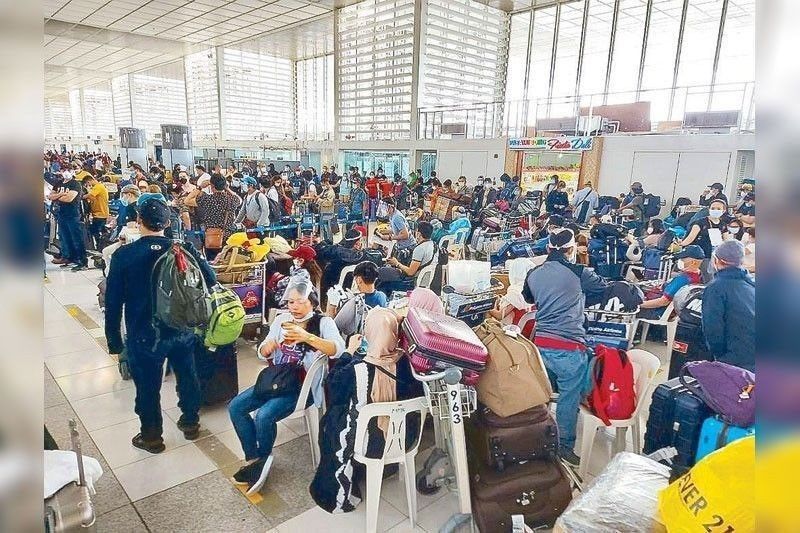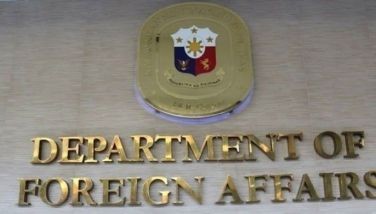Kuwait deployment ban to affect 47,000 aspiring OFWs

MANILA, Philippines — Up to 47,000 Filipino workers may not be able to depart and seek employment in Kuwait with the suspension of the deployment of household workers in the oil-rich emirate, according to the Department of Migrant Workers (DMW).
“Last year, there were around 47,000 overseas household service workers (HSWs) who went to Kuwait. As we see it, around that same figure will potentially be affected within a year,” DMW Undersecretary Hans Cacdac said during the Laging Handa public briefing yesterday.
Cacdac said the DMW decided to temporarily stop the deployment of first-time HSWs to ensure their safety.
“First-time OFWs are the most vulnerable or likely to experience difficulty in adjusting in Kuwait. That’s why we are looking after their welfare very carefully,” Cacdac said.
Unless the government can ensure that the standard employment contract provides appropriate welfare and protection, and only those agencies with clear track record can recruit workers, Cacdac said the government would not lift the suspension.
He gave assurance that the DMW would press for reforms in their upcoming negotiation for a new bilateral agreement with the Kuwaiti government.
Among the reforms, he said is extensive training for OFWs as well as Kuwait employers to avoid misunderstandings between them.
2,000 HSWs to be displaced monthly
Meanwhile, at least 2,000 aspiring OFWs each month will lose potential employment and income with the temporary suspension of deployment of first-time domestic helpers to Kuwait.
“The temporary suspension is a serious blow not only for the recruitment agencies but to OFWs as well,” migration consultant Manny Geslani said.
In an interview with One News’ “The Chiefs” aired over Cignal TV/TV5 on Wednesday night, Geslani said the country deploys to Kuwait a monthly average of 2,500 HSWs, a majority of whom are new hires.
Geslani said the number of Filipino HSWs to Kuwait soared in 2021 when then labor secretary Silvestre Bello banned the deployment of newly hired HSWs in Saudi Arabia.
The government also banned the deployment of OFWs to Kuwait following the death of Filipina domestic helper Joanna Demafeliz.
The ban was lifted only after the signing of a bilateral agreement between the Philippines and Kuwait.
The DMW again stopped the deployment of first-time HSWs to Kuwait shortly after the murder of Filipina domestic helper Jullebee Ranara.
“The ban on new hires or first-time HSWs is the right step toward resolving the problem,” Geslani said.
While he expressed support for the DMW’s decision, he said the ban should not be implemented outright.
Geslani said there is no clear time period when the deployment may resume, leaving thousands of HSWs awaiting deployment, stranded and without any source of income.
He said that private agencies deploying HSWs to Kuwait were also not consulted by the DMW on the deferment.
Geslani said private agencies are requesting that those who have been processed and issued exit clearance be allowed to depart to fulfil their contracts in Kuwait.
Aside from temporary suspension, Geslani suggested that the government should revise the current training for HSWs departing to Middle East countries.
“It really needs change in the modules because these are not sufficient to comply with the requirements of the Kuwaiti households,” Geslani said as he stressed the need to teach departing HSWs the Kuwaiti language so they can better communicate with their employers.
Most Kuwaiti women, he said, are strict employers.
The working condition for HSWs in Kuwait is similar in Saudi Arabia. There are also a lot of distressed HSWs not getting reported.
Geslani clarified that many OFWs seeking refuge in government-run shelter in Kuwait are not all victims of abuse.
Many new hires opt to leave their employers three months after arrival in Kuwait and seek the government’s help for immediate repatriation.
There is an existing mechanism to help OFWs in distress, Geslani said.
Although it is mandated under the deployment rules, Geslani said it would be very difficult for recruitment agencies to monitor the OFWs daily. – Cecille Suerte Felipe
- Latest
- Trending































